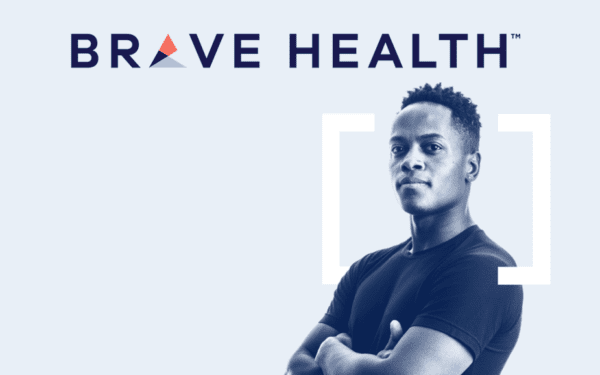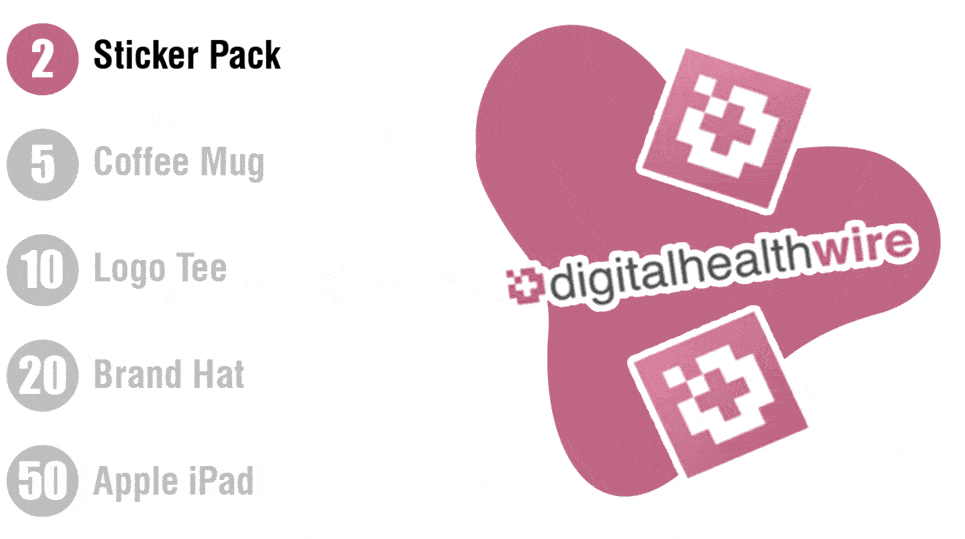|
Brave Raises $40M | Medicare Worries
October 13, 2022
|
|
|

|
|
Together with
|

|
|
|
“At least based upon my experience, the digital transformation is 75% organizational change management and 25% technology.”
|
|
MedStar Health Chief Digital Transformation Officer John Lock
|
|

|
|
Serve a large need. Serve it at scale. Serve it well. It’s a popular playbook for many mental health startups, but Brave Health is looking to put a twist on the model with $40M in Series C funding.
Brave’s strategy differs from employer-focused mental health providers like Lyra and Headspace in its commitment to Medicaid members, no easy path considering only a third of psychiatrists accept new Medicaid patients.
To serve this population, Brave employs nearly 200 behavioral health providers and supports them with a tech stack that’s one part teletherapy tool and one part engagement platform.
- These providers offer virtual counseling, therapy, and psychiatry, while the priority is to get Medicaid patients referred to mental health services into care as quickly as possible.
- This engagement component is key. Brave boasts an 80% contact success rate and has received 23k referrals this year alone through partnerships with payors and hospitals.
The fresh funding will be used to help Brave expand beyond the 18 states in which it currently operates, and to accelerate the activation of more value-based contracts.
- After entering its first VBC contract with Molina Healthcare of Texas earlier this year, Brave’s now signed two others to push the total number of lives it could potentially cover under risk-based arrangements to over one million.
- It’s also likely that we’ll see Brave double down on partnerships with other startups in the Medicaid space, building off of existing relationships with MedArrive (in-home care) and Doula Network (maternal mental healthcare).
The Takeaway
Brave’s “you can’t treat who you can’t reach” approach is fairly unique among its cohort of VC-favorite mental health startups, but its focus on Medicaid sets it even further apart from competition. By taking ownership of getting members into treatment as well as their care journey, Brave seems well-positioned to deliver results for both health plans and the patients they serve.
|




|
|
A New Approach to Nurse Wellbeing
The pandemic didn’t make nursing any easier, but it did change the set of tools that can help nurses do what they do best – caring for patients. Head over to connectRN’s blog to find out how taking a systematic approach to nurse wellbeing can help keep your staff delivering care at the highest level.
|
|
How Medallion Helped Skintap Launch in 15 States
In order to launch and scale, Skintap had to build a network of dermatologists who could see patients across the US. Learn how Medallion helped Skintap’s providers get licensed in over 15 states in less than four months – without any headaches and well before their launch date.
|
|
- Medicare Enrollment Worries: Just ahead of open enrollment for Medicare kicking off on October 15, a new survey from Gravie and Wakefield Research uncovered a stat that might even be a little funny if it wasn’t for the problem it highlights: 1/3 of employees believe that figuring out their employer’s health plan is more stressful than doing their actual job. Although improving benefits has been a top priority for employers in a hot job market, 86% of respondents are concerned their benefits won’t cover all of their needs, and 71% said their health plan still doesn’t include mental health.
- AON Oncology SPAC: Oncology practice enabler American Oncology Network is setting its sights on the public markets after announcing a $500M SPAC merger with Digital Transformation Opportunities Corp. Since starting in 2018, AON’s platform has grown to support 71 clinics across 18 states with practice management solutions and “revenue-diversifying adjacent services” such as centralized specialty pharmacy, diagnostics, and pathology.
- Self-Measured BP Participation: A JAMA study revealed that only half of Americans with blood-pressure conditions regularly perform self-measured BP monitoring, even after being recommended to do so by their doctors. Among 1.2k survey respondents with hypertension or a blood pressure-related condition, 55% owned and used a home BP monitor at different frequencies, yet only half of that group shared the results with clinicians.
- Memora + Luma: Virtual care startup Memora Health is partnering with engagement platform Luma Health to combine their solutions into a new program for health systems. Memora’s SMS-based tech uses natural language processing to triage patient-reported symptoms while helping with care plan adherence, and Luma’s Patient Success Platform includes smart scheduling and referral management to help patients avoid care gaps. This is Memora’s seventh partnership in seven months, following last month’s announcement with UP Medical.
- High-Deductible Health Plans: A study in AJMC found that patients with high-deductible health plans (HDHP) are 6.6% less likely to receive substance use disorder treatment than those without one. Researchers analyzed OptumLabs commercial claims data from 28M patients (2.2% with a diagnosed SUD), finding that having an HDHP led to 21% less health plan spending and a 14% increase in OOP spending, which the authors note could be leading some patients to forgo care.
- PointClickCare Virtual Health: Canada-based health tech company PointClickCare unveiled Virtual Health, an integrated telehealth service for skilled nursing facilities that provides around-the-clock access to hospitalists. Virtual Health is aimed at reducing hospital readmissions and integrating workflows between providers, and is now being rolled out in over half of US states through a partnership with Sound Physicians.
- Healthcare Hiring Recovery: The September Jobs Report revealed that the healthcare sector has now fully recovered the 1.4M jobs lost early in the pandemic, adding 60k jobs throughout last month. Ambulatory services and hospitals added 28k workers each, while other gains came primarily from physician offices and home healthcare services.
- Emcara & Aetna VBC Partnership: PopHealthCare’s value-based medical group Emcara Health entered a partnership with CVS’ Aetna Better Health of Florida to provide Emcara’s comprehensive primary care model to Aetna’s Medicaid members. Under the agreement, Emcara will launch services in Tampa Bay, Orlando, and Miami-Dade to offer care to Aetna members with multidisciplinary care teams of doctors, community health workers, and social workers to treat physical conditions while addressing SDOH barriers.
- Wasteful Administrative Costs: New research in Health Affairs estimates that roughly 15% of US medical spending is administrative waste ($570B!), with the authors finding that at least half of all admin cost “does not contribute to health outcomes in any discernible way.” The report makes the case that the government should standardize administrative processes such as prior authorization across public and private sectors to cut back on wasteful spending.
- Alleva Raises $12M: Alleva secured $12M in Series A funding to support the development of its cloud-based EHR, purpose-built for behavioral health practices. The EHR includes an integrated CRM, data analytics dashboard, and helps to facilitate reporting, compliance, and workflow optimization.
- PCPs’ Screening Dissatisfaction: A JAMA study revealed that primary care physicians (n = 273 from 3 health systems) are largely dissatisfied with the way abnormal cancer screening results are managed, proposing the creation of a new primary care-focused system. Very few PCPs were satisfied with their current processes for abnormal screening follow-ups (21.8% w/ cervical, 22.4% w/ lung, 46.9% w/ breast), citing a lack of EHR tools and standard processes (automated reports, reminder letters, team outreach) as key barriers.
|
|
Patient Engagement for a VP of Patient Experience
Nuance’s patient engagement guide for hospital execs gives a patient’s-eye view of the engagement experience and explores what the growing demand for convenient interactions means for the VP of Patient Experience.
|
|
Streamlining Care With BrainInsight AI
Discover how Hyperfine’s BrainInsight AI tools are streamlining patient care by giving clinicians the quantitative biomarker information needed to reduce the burden of manual brain MRI measurements and decrease the time to diagnose and treat.
|
|
|
Share Digital Health Wire
|
|
Spread the news & help us grow ⚡
|
|
Refer colleagues with your unique link and earn rewards.
|

|
|
|
|
Or copy and share your custom referral link: *|SHAREURL|*
|
|
You currently have *|REFERRALS|* referrals.
|
|
|
|
|